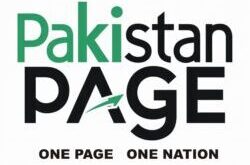Pakistan’s System and the People;

By Sheraz Khan – London
Nations are built by their people, and the people residing in a country are the essence of that nation. Without its people, a country is merely a wilderness or a vast, uninhabited land. Historically, the struggle has always been between the system and the people. A system that is subordinate to the people and respects their opinion becomes the strength of the state. This is because the collective will of the people is always more powerful than any system.
Regardless of how long the struggle lasts, systems that work against the public interest have always been defeated by the people. For instance, the French Revolution and the drafting of the American Constitution two centuries ago were both milestones in the establishment of democracy and constitutional supremacy. Similarly, Britain’s democratic foundation, which has withstood the test of time, was built through a long and arduous journey marked by sacrifices. It took decades of struggle before votes were respected, and public opinion became integral to the democratic process.
If we analyze Pakistan’s current situation in light of its history, we see that leaders such as General Ayub Khan, General Yahya Khan, General Zia-ul-Haq, and General Musharraf did not come to power through the mandate of the people. Their rule represented authoritarian systems that not only led to the division of the country but also left long-lasting negative effects. The repercussions of these regimes continue to harm both the people and the nation.
Several elements born out of these authoritarian systems have extended their influence directly or indirectly, further perpetuating the flawed system. In the current context, shortsighted authoritarian, feudal, and capitalist forces have continued their efforts to sustain this system instead of breaking free from it. Two and a half years ago, Imran Khan’s government was abruptly dismissed. Following this, a new political party was launched to counter him, leaders were imprisoned, loyalties were forcibly changed, and political workers were subjected to brutal repression. Elections were postponed beyond constitutional limits, and then came the events of May 9, which saw unprecedented violations of privacy, security, and rights.
Subsequently, a series of actions undermined the system further: false political cases, personal attacks, stripping Imran Khan’s party of its electoral symbol, tampering with election results, and imposing defeated candidates on the nation. Despite these challenges, the public voted against the system, showing their support for Imran Khan.
Today, one must ask:
Are those governing the country truly chosen by the people?
Were the votes in the February 8 elections not stolen?
Has the Supreme Court not been discredited?
Has the parliament not been reduced to a mere rubber stamp?
The current government’s policies have worsened the country’s economy, internal affairs, and security situation, leading to unrest across provinces. While living in the UK, I benefit from the British democratic system, where votes are respected and their outcomes are honored. This is a reminder to support the people rather than a system that undermines their rights.
The ongoing struggle is no longer just about Imran Khan but about changing the system itself, promoting democracy, freedom of speech, human rights, and respect for public opinion. Politicians are tasked with governance, the army with protecting borders, and employees with fulfilling their roles. It is essential to stand with the people in their battle for a fair system.
From Kurram Agency to Gwadar, from the mountains of Kashmir to the Gulf countries, and from Europe to the United States, Pakistanis are protesting against the current state of affairs. These demonstrations reflect a lack of trust in Pakistan’s judicial, military, and political systems, which is detrimental to the country.
In the past, Pakistanis rallied in support of the armed forces during conflicts like Kargil and the wars of 1965 and 1971. However, today, public distrust in institutions signals a worrying trend. If we wish to move forward, we cannot avoid dialogue with Imran Khan. His public mandate and widespread support cannot be ignored. The path to progress requires resolving the current crisis through constitutional means and ending the cycle of oppression.
Efforts to suppress public awareness and dissent through brute force are futile. The genie of public consciousness, once out of the bottle, cannot be put back. The state must break free from dead-end strategies to allow the nation to move forward. Hatred and division should be replaced with justice and respect. Ultimately, sovereignty belongs only to Allah, and He will remain the eternal ruler.

